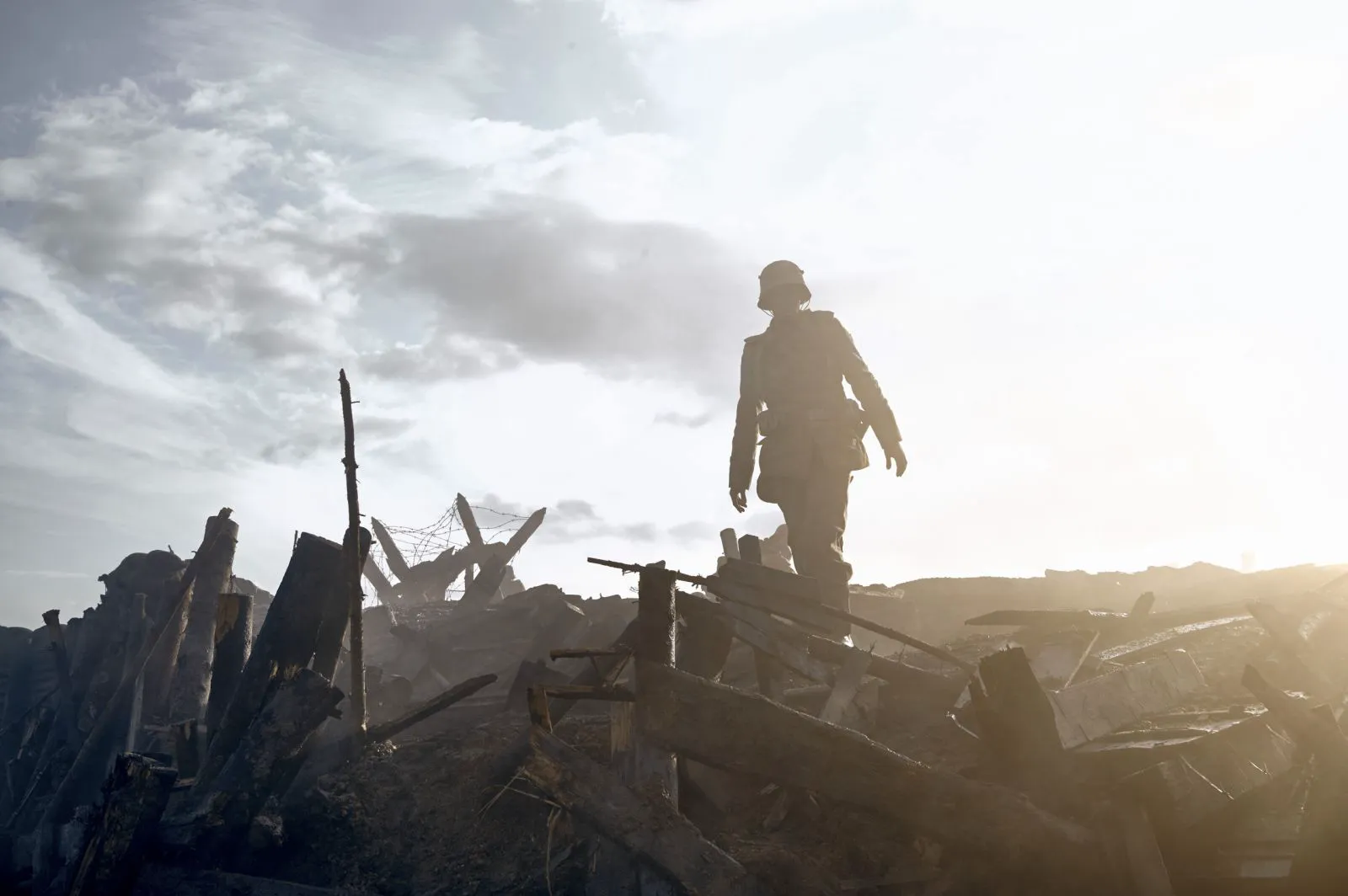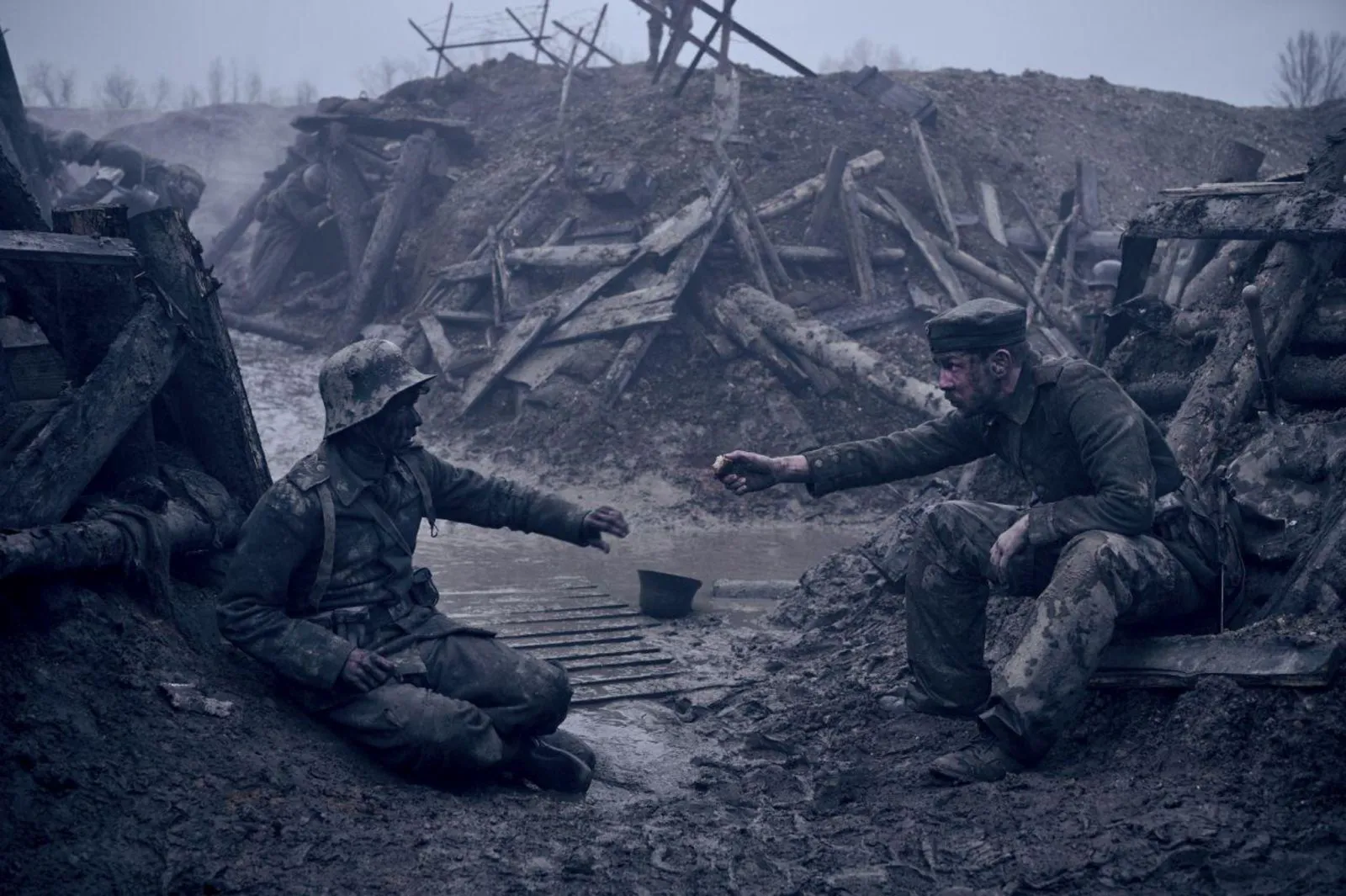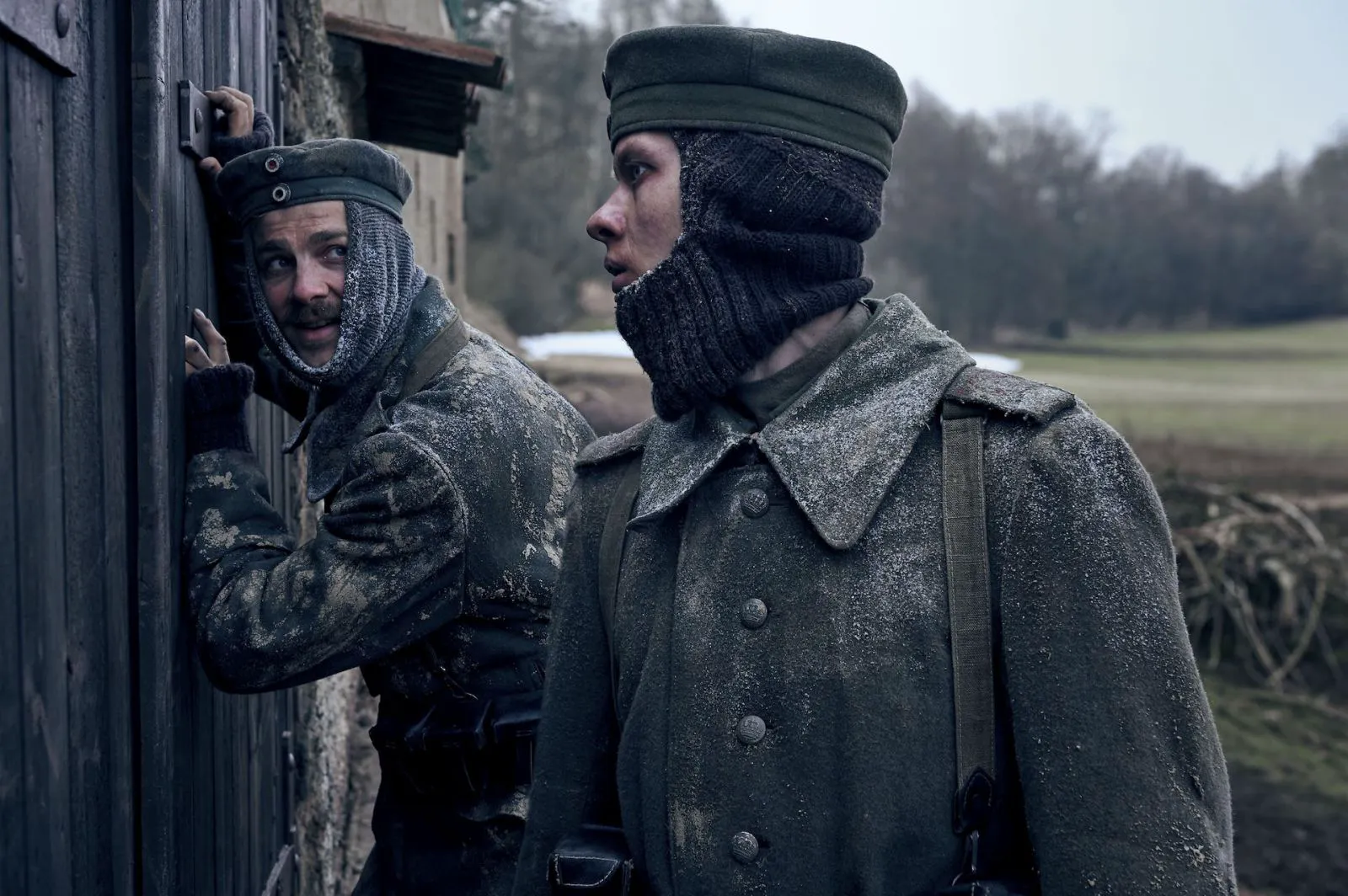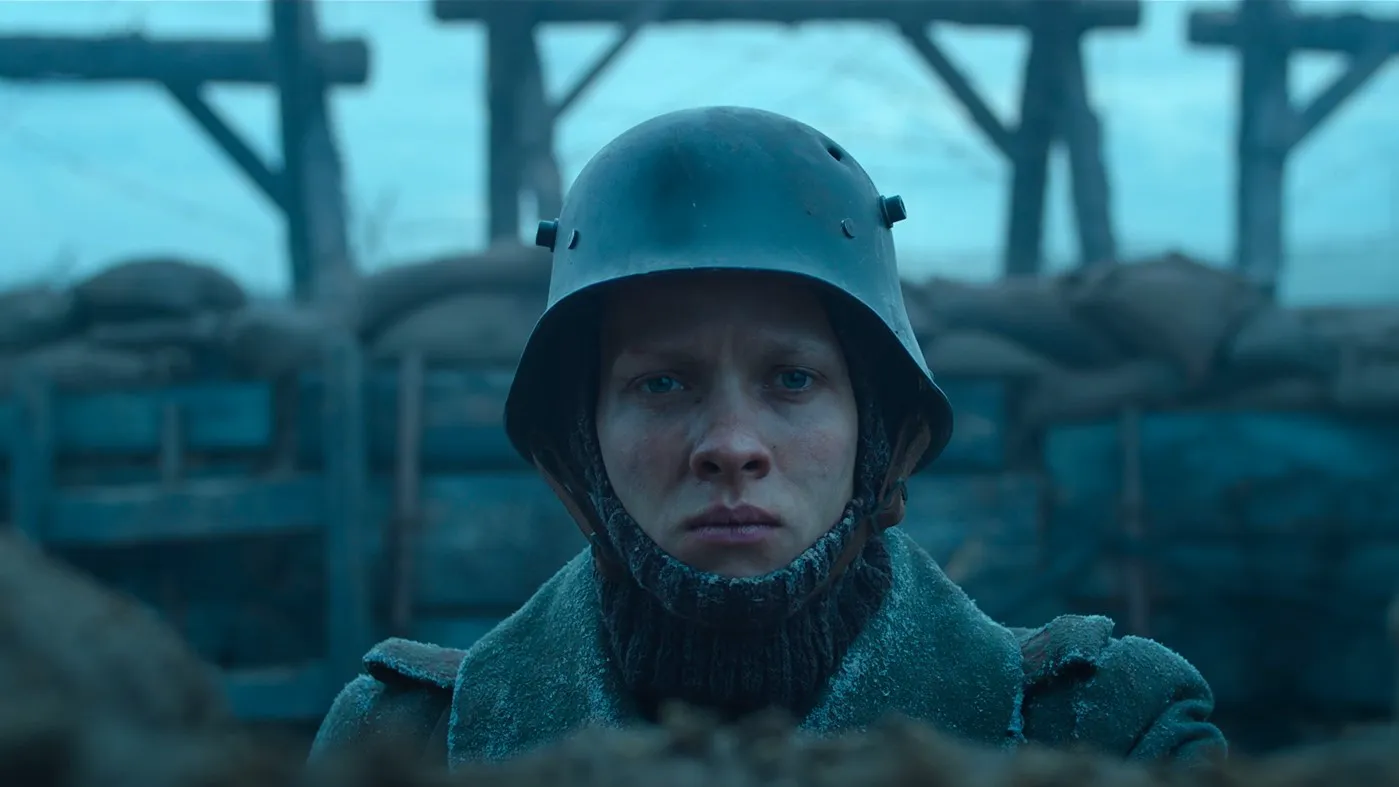All Quiet on the Western Front: A Haunting Reminder of War’s Futility
Spring 1917, the third year of World War I. Four young Germans enthusiastically receive their draft notices. One of them, Paul (Felix Kammerer), even forges his parents’ signature to join his comrades at the front as soon as possible. “Paris will be ours in a week,” a minister fervently tells the mobilized men, and they, filled with the will to win and heroism, set off for the Western Front. There, they encounter only fear, hunger, and death. And while politicians in fine suits decide the fate of the country, ordinary soldiers rush into battle, not understanding why they are dying in the mud of the trenches.

Still from “All Quiet on the Western Front”
The Novel’s Impact and Legacy
Erich Maria Remarque’s novel “All Quiet on the Western Front,” published in 1929, had a shocking effect on the public. The writer spoke the truth about World War I, which not everyone wanted to hear at the time: in the horrific slaughter that claimed millions of lives, there was absolutely no meaning, and its consequences were terrible and inhuman. This conclusion terribly irritated the Nazis, who, upon coming to power, outlawed Remarque and began burning his books. In the 1930s, the Germans did not listen to Remarque, and then an even more terrible slaughter began.

Felix Kammerer as Paul in a still from “All Quiet on the Western Front”
A German Perspective on War
Surprisingly, “All Quiet on the Western Front” has never been filmed in Germany until now. Despite the fact that Remarque’s book remains hugely popular, and the 1930 Hollywood adaptation won two Oscars and is still included in lists of the best anti-war films. Perhaps, it takes courage to make a film about one’s defeats and mistakes, and not everyone is ready to dissect historical traumas. But director Edward Berger (author of the German drama “Jack” and a successful series director, whose credits include episodes of “Patrick Melrose” and “Your Honor”) found the strength to show the generation of his grandfathers in the most unattractive but truthful form.

Felix Kammerer as Paul in a still from “All Quiet on the Western Front”
Berger’s Adaptation: A Grim Reality
His adaptation of “All Quiet on the Western Front” shows a familiar landscape of World War I: dirty trenches, incessant rains, and the miserable faces of soldiers awaiting the arrival of an enemy shell. Director Berger does not look for new technical or visual means to construct military operations on the screen, as Sam Mendes did in “1917.” It is much more important for him to show the contrasts of this senseless slaughter, the psychological changes in the characters caught in the millstones of history. However, Berger cannot be reproached for poor directing either. The battle scenes are staged professionally and tensely, the spirit of the time is perfectly conveyed in costumes and scenery, and the author does not overdo it with naturalism in the depiction of violence.
Dehumanization and Degradation
Although Berger adapted Remarque quite freely, it is clear that it is important for the director to convey the spirit and intent of the original source. The film wonderfully shows the insane kaleidoscope of war, as the killed Germans are routinely replaced by new young mobilized men. The director identifies an ordinary soldier with a thing - the uniform is removed from the body of the deceased, and then it is altered and passed on to the new one, only tearing off the worn patch with the name of the former owner. In the same way, a person turns into a copper token indicating the name and date of birth, which, if lucky, will be found by living comrades in the trenches or on the battlefields. The kind-hearted soldier Katczinsky (Albrecht Schuch) at some point calls himself simply “boots with a gun.” War as a process of dehumanization and degradation is shown in the film with impressive conviction. And the main character Paul, this cheerful German boy, in the finale becomes an indifferent killing machine with a pale face and empty eyes.

Felix Kammerer as Paul in a still from “All Quiet on the Western Front”
Political Maneuvering and the Seeds of Future Conflict
While the unfortunate young soldiers, who dreamed of exploits in a victorious campaign, are dying for nothing, another storyline of the film unfolds in parallel - negotiations between the German government and the French. Here, the main character is Matthias Erzberger, played by actor Daniel Brühl, a depressed politician who realizes the scale of the catastrophe in which his country finds itself and who lost his son in the war. He is forced to argue with the military leadership, which craves victory at any cost, and then beg for a humiliating peace from France. And while the conflict is going on, and the signature on the peace treaty is not yet in place, generals, driven mad by power and blood, continue to send soldiers to certain death. Berger does not miss the chance to show in the pompous military leader, who declares a senseless attack literally a couple of hours before the end of the war, the face of future fascism. “The damned Social Democrats, traitors to the Motherland, are to blame for everything,” he shouts, and in this rhetoric, echoes of future catastrophes are already heard.
A Timely Reminder
“All Quiet on the Western Front” is a relevant and important reminder that darkness and horror are always hidden behind beautiful slogans about victory. Berger, following Remarque, does not discover any new truths, does not rethink the events of the First World War, but clearly demonstrates the chaos and absurdity of the slaughter, the terrible effect it has on people. War is not a place for humans. Violence is an infection, a plague that affects everyone with terrible speed. I would like Remarque’s legacy to remain in the past, but the fact that his film adaptation evokes such acute feelings today means that we need to return to it much more often. Then, maybe, the words will finally sound: “Farewell to arms!”